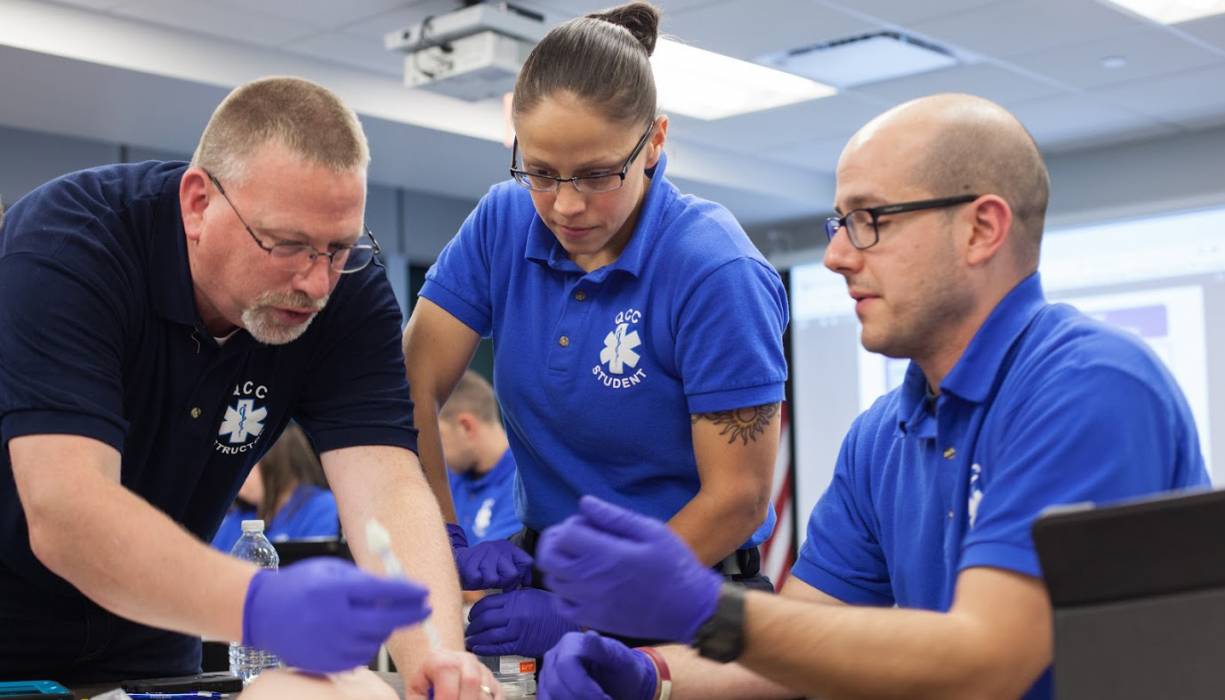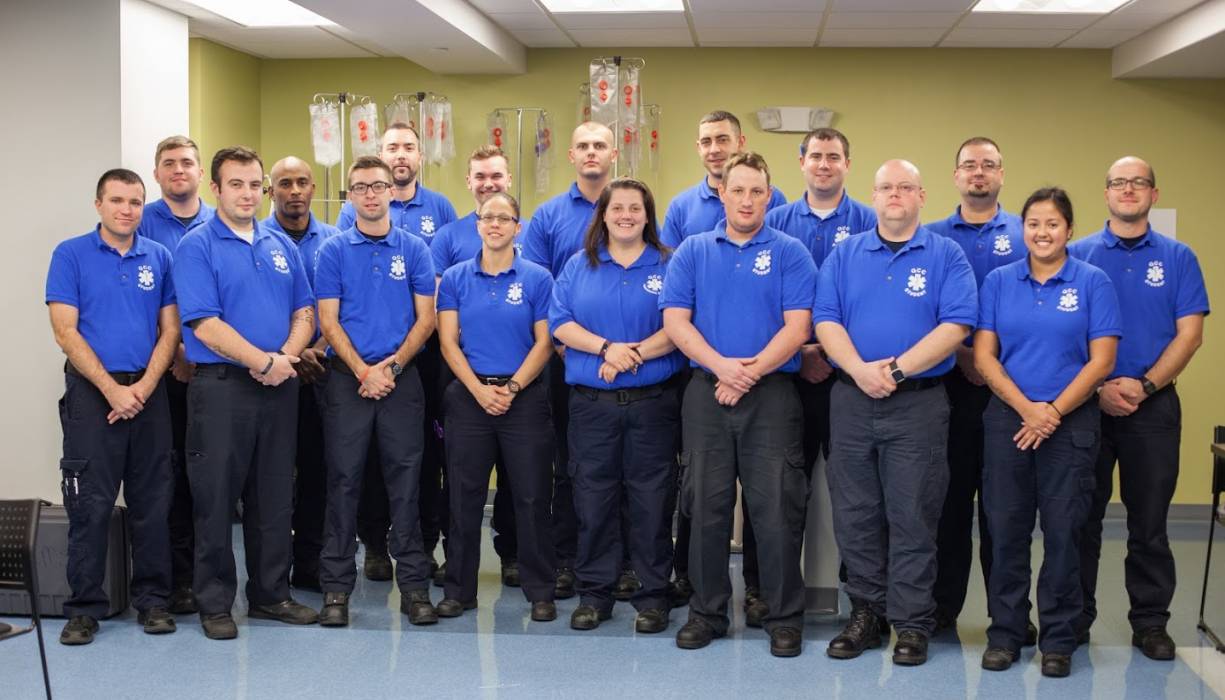You are here
Narcan Courses at Quinsigamond Community College Offer Life-Saving Skills
The increase of opioid-related deaths has grown to epidemic proportions both locally, regionally and globally. The Centers for Disease Control and Prevention cite that six out of 10 drug overdoses are opioid-related. In Worcester, there were 77 opioid-related deaths in 2015 and 56 in 2016.
At Quinsigamond Community College, those statistics are not surprising to the college’s paramedics students, who recently took a refresher course on how to administer Narcan (a drug that can reverse the effects of an opioid overdose).
“The students who were there have already been EMT’s for a minimum of one year or longer. Many have already administered Narcan in the field, so this was more of a refresher for the group,” said QCC’s Program Coordinator of the Emergency Medical Services Program, Cheryl Finn.
Administering Narcan is a topic that is covered regularly in both the EMT and paramedics programs at the college, and is a required skill for the national curriculum of both programs.
“Our Paramedic students practice 33 individual skills repetitively during their lab and simulations sessions to meet the higher standards of the National Registry of EMTs Paramedic Psychomotor Competency Portfolio. Once completed they proceed to clinical and field internships to perfect their skill with live patients. Narcan administration is one of those skills,” Ms. Finn said. “The proper administration of Narcan can save lives. When someone is not breathing, and seconds count, we know that our students are confident in their training and can help give someone a second chance at living a full life. Our students are well trained in the cognitive, psychomotor and affective domains to provide excellent patient care.”


